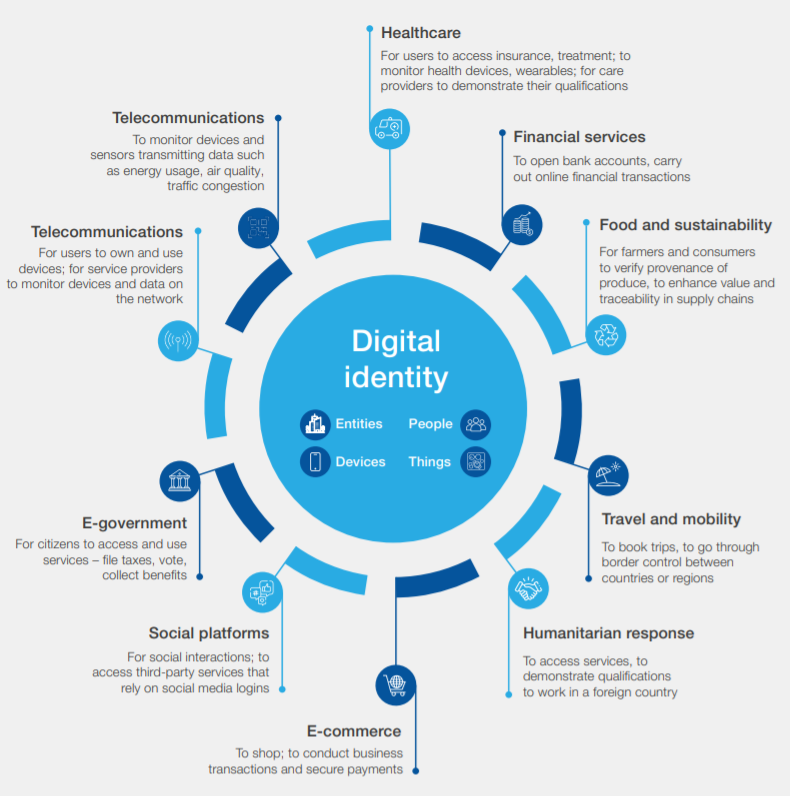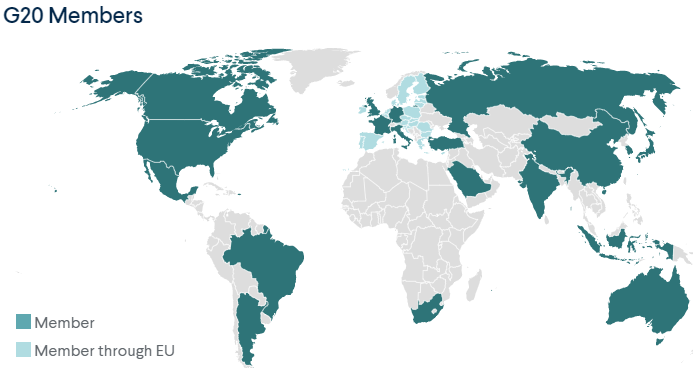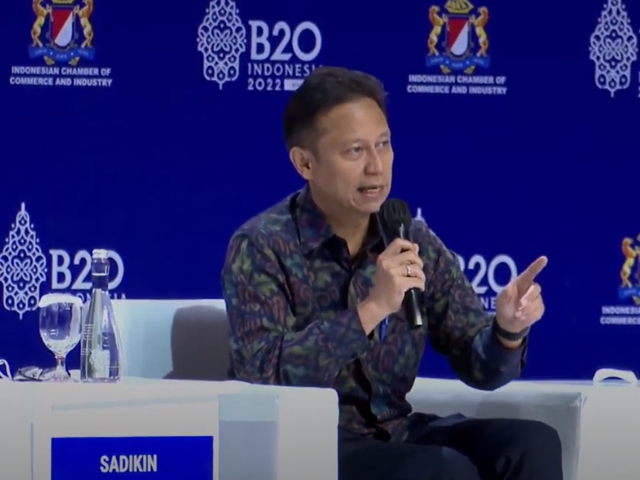The B20 calls on the G20 to adopt vaccine passports using WHO standards and to promote digital identity schemes.
Ahead of the Group of Twenty (G20) Summit on November 15, the Business 20 (B20) held its own summit in Bali, Indonesia from November 13-14.
On the first day of the B20 Summit, Indonesia’s Minister of Health Budi Gunadi Sadikin said that G20 countries should adopt a “digital health certificate using WHO standards” and that they were looking to introduce this type of vaccine passport into the “international health regulations” during the next World Health Assembly in Geneva.
“Let’s have a digital health certificate acknowledged by WHO — if you have been vaccinated or tested properly — then you can move around” — Budi Gunadi Sadikin, Indonesian Health Minister, B20 Summit 2022
“G20 countries have agreed this digital certificate using WHO standard, and we will sub it into the next World Health Assembly in Geneva as the revision to international health regulation” — Budi Gunadi Sadikin, Indonesian Health Minister, B20 Summit 2022
“Let’s have a digital health certificate acknowledged by WHO — if you have been vaccinated or tested properly — then you can move around,” said the Indonesian health minister.
“For the next pandemic, instead of stopping the movement of the people 100 percent […] you can still provide some movement of the people.
“Indonesia has achieved, G20 country has agreed, this digital certificate using WHO standard, and we will sub it into the next World Health Assembly in Geneva as the revision to international health regulation.
“Hopefully for the next pandemic, we can still see some movement of the people, some movement of the goods, and movement of the economy,” Sadikin concluded at the B20 Summit.
Prior to becoming Indonesia’s Minister of Health, Sadikin worked in high-level positions at Bank Bali, Bank Mandiri, ABN AMRO Bank Indonesia, PT Bank Danamon, and IBM.
“Adopt the Digital Documentation of COVID-19 Certificates” — B20 Policy Recommendation, 2022
“Ensure global coordinated response for future crises enhanced by a technology-enabled ‘always-on’ global health infrastructure” — B20 Policy Recommendation, 2022
The Indonesian health minister’s call for a digital health certificate, which serves as a form of vaccine passport, made its way into the official policy recommendations of the B20 to the G20.
According to the 132-page B20 Indonesia 2022 Final Communique: Policy Recommendations to the G20, member countries should “Promote further exchanges and strategic use and sharing of science, technology, and appropriate data for crisis detection, creating global coordination framework for future crisis mitigation.”
Those policy recommendations include, but are not limited to:
- Adopting the Digital Documentation of COVID-19 Certificates
- Creating robust guidelines on health emergency preparedness to ensure global coordinated response for future crises enhanced by a technology-enabled “always-on” global health infrastructure
- Implementing and extending the mutual recognition of COVID-19 vaccines
“A health pass based solely on individual vaccination status may increase the risk of disease spread” — World Health Organization, August 2021
In August, 2021, the World Health Organization (WHO) published a 99-page guide book on the implementation of digital documentation of COVID-19 certificates, aka vaccine passports, stating that “a health pass based solely on individual vaccination status may increase the risk of disease spread.”
This is because the COVID-19 “vaccines” were never proven to prevent transmission nor infection, and it recently came to light in the European Parliament that Pfizer never even tested its product for stopping transmission.
Despite this knowledge being publicly available, the B20 is still recommending proof of vaccination as a means to travel.
“These [vaccine] passports by nature serve as a form of digital identity” — World Economic Forum, February, 2022
“The G20 should support the design of policies aimed at promoting digital identities as a building block for data privacy and digital trust” — B20 Policy Recommendation, 2022
Vaccine passports, by their very nature, serve as a form of digital identity, according to the World Economic Forum (WEF).
A digital identity encompasses everything that makes you unique in the digital realm, and it is a system that can consolidate all of your most personal intimate data, including which websites you visit, your online purchases, health records, financial accounts, and who you’re friends with on social media.
Now, the B20 Final Communique is also recommending, as a matter of policy, that the G20 support and promote not just vaccine passports, but overall public and private digital identity schemes as well.
These digital identity schemes are said to help bolster financial inclusion, mitigate crises, and serve as “a building block for data privacy and digital trust.”
However, digital identity schemes can give governments and corporations the power to incentivize, coerce, or otherwise manipulate human behavior under a system of social credit.
Digital identities can be used to determine what products, services, and information are available to us, and they can certainly be used by public and private entities to deny us that access.
“This digital identity determines what products, services and information we can access – or, conversely, what is closed off to us” — World Economic Forum

“The G20 should ask MDBs [Multilateral Development Banks] to support governments in developing and implementing digital identity schemes to bolster financial inclusion” — B20 Policy Recommendation, 2022
The B20 Final Communique calls on the G20 to “Promote adoption of digital infrastructure (cloud, digital identification, digital payment systems, digital signatures, amongst others) and facilitate the importance of data free flow with trust and cross-border data flows on the premise of respecting the domestic legal frameworks of each country.”
These policy recommendations say that:
- The G20 should support the design of policies aimed at promoting digital identities as a building block for data privacy and digital trust
- The G20 should promote awareness, and increase collaboration between public and private sector to enhance interoperability of tools promoting Consent and Authorization such as digital signature and strong authentication platforms to promote trust in the digital ecosystem
- The G20 should adopt action plans to realize the benefits of inclusive digital payments systems through several actions such as digitizing government payments and actively engage in the regulatory agenda
- The G20 should promote usage of the cloud within public and private entities
- The G20 should promote policies and increase collaboration to build R&D capabilities and ensure that R&D efforts effectively translate into tangible impacts as part of efforts to develop advanced capabilities in digital infrastructure, such as the application of blockchain
- The G20 should support more infrastructure investments and public-private partnership on digital initiatives to detect fraud
- The G20 should enable safe and orderly cross-border data flows with trust based on applicable global, regional, and domestic legal frameworks for privacy and data protection
The B20 is the official G20 dialogue forum with the global business community, and it is tasked with formulating policy recommendations on designated issues.
The recommendations are then delivered to the G20 Presidency at the B20 Summit, which takes place around the G20 Summit.

The G20 is a forum comprising nineteen countries with some of the world’s largest economies, as well as the European Union (EU).
The countries are Argentina, Australia, Brazil, Canada, China, France, Germany, India, Indonesia, Italy, Japan, Mexico, Russia, Saudi Arabia, South Africa, South Korea, Turkey, the United Kingdom (UK), and the United States.
Spain is invited as a permanent guest, according to the Council on Foreign Relations.












